Interviewed by Esha Chaudhuri
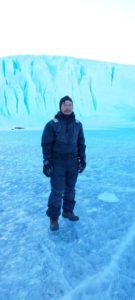 June is a month that heralds conscious enlightenment on the environment. This, ever more so now, with rising awareness concerning the environment and the many anomalies related to its degradation. One such global worry is the melting of the glaciers in the poles, exacerbated by global warming or the rise of the average in temperatures in turn increasing water levels. According to the World Wildlife Fund (WWF) since the early 1900s, many glaciers around the world have been rapidly melting and Even if we significantly curb emissions in the coming decades, more than a third of the world’s remaining glaciers will melt before the year 2100! Bearing this idea, Sunday Shillong set out to dialogue with Meteorologist Rivertis Pariong from Shillong who set out on an official year long expedition to Antarctica returning with knowledgeable insights about the White Continent and its effects on our existence at large. Excerpts of the interview are as follows:
June is a month that heralds conscious enlightenment on the environment. This, ever more so now, with rising awareness concerning the environment and the many anomalies related to its degradation. One such global worry is the melting of the glaciers in the poles, exacerbated by global warming or the rise of the average in temperatures in turn increasing water levels. According to the World Wildlife Fund (WWF) since the early 1900s, many glaciers around the world have been rapidly melting and Even if we significantly curb emissions in the coming decades, more than a third of the world’s remaining glaciers will melt before the year 2100! Bearing this idea, Sunday Shillong set out to dialogue with Meteorologist Rivertis Pariong from Shillong who set out on an official year long expedition to Antarctica returning with knowledgeable insights about the White Continent and its effects on our existence at large. Excerpts of the interview are as follows:
SS: You’re back after a year-long stay in Antarctica. How does it feel?
RP: Yes, I have stayed in Antarctica from November 2021 to December 2022. I feel a sense of accomplishment because it’s not an opportunity that everybody receives and also because I have returned with lessons of a lifetime.
SS: What is the feeling that stayed with you while you were there at ground zero?
RP: There is a sense of responsibility towards work, as I along with my team had gone to Antarctica for a specific purpose regarding sciences, it is our duty to work sincerely and dedicatedly for its achievement. Safety was one of the primary factors working in those hostile and harsh environment conditions of Antarctica; guidelines for safety had to be followed at every step to avoid any mishaps.
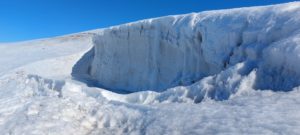 SS: What are three major takeaways from your visit on a human level?
SS: What are three major takeaways from your visit on a human level?
RP: On a human level, apart from the sciences, firstly, there were severe weather conditions that posed a challenge to human thriving: intense cold, winds, blizzards, crevasses, snow and white ice all around, requiring sound physical and mental health to persevere and endure those conditions. At one point, the temperature recorded at Vostok, a Russian station on July 21, 1983 was minus 89.2 degrees celsius. Secondly, isolated living, since Antarctica has no civilization except for researchers of sciences and logistic members who are present for a specific period and back. Antarctica is not a place where one can have internet facilities or communication of any sort as is the case in other parts of the world. In fact, contact with near and dear ones may be disturbed, and once there, one cannot travel back at any time due to its remote location and harsh weather conditions. Physical isolation affects one mentally with intense feelings of loneliness, stress, living far away from civilisation and being cut off from a sense of ‘normalcy’, so to speak.
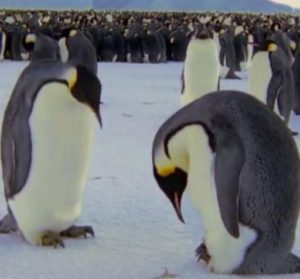 Thirdly, the monotonous life in Antarctica can take a while to adjust to. Since there is no human habitation, life in Antarctica can feel unreal as it is unimaginable. For me, it was restricted to tasks at the base and at specified periods outside for scientific and logistic works. For wintering members, (those who stay for more than one year in Antarctica), after returning home it takes some time to adapt to the humdrum of daily living, the pollution, and the trends of life. However, most are mentally and physically stable members and complete the expeditions successfully.
Thirdly, the monotonous life in Antarctica can take a while to adjust to. Since there is no human habitation, life in Antarctica can feel unreal as it is unimaginable. For me, it was restricted to tasks at the base and at specified periods outside for scientific and logistic works. For wintering members, (those who stay for more than one year in Antarctica), after returning home it takes some time to adapt to the humdrum of daily living, the pollution, and the trends of life. However, most are mentally and physically stable members and complete the expeditions successfully.
SS: Tell us about your journey to Antarctica and how it all happened.
RP: My journey to Antarctica was full of memorable experiences. I represented the Indian Meteorological Department, Ministry of Earth Sciences as a team member of the Indian Scientific Expedition to Antarctica. Our work included observations of air temperature, surface wind, mean sea level pressure, global solar radiation, snow, blizzards, atmosphere vertical profile, surface ozone, vertical profile of ozone and surface radiation budget, among many other tasks to help better understand weather forecasting and the behaviour of the polar systems.
There is a selection procedure, after getting selected from the concerned departments/institutions, we have to undergo a pre-ice acclimatisation training at Mountaineering and Skiing Institute Auli, Uttarakhand conducted by the Indo-Tibetan Border Police Force along with a thorough medical screening at the All India Institute of Medical Sciences (AIIMS) New Delhi. Clearing these procedures is a prerequisite.
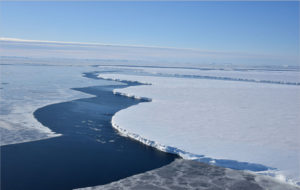 In Antarctica, our work was the primary and only task and we made sure that human resources were dedicated to professional duties along with the use of the latest instruments and technologies.
In Antarctica, our work was the primary and only task and we made sure that human resources were dedicated to professional duties along with the use of the latest instruments and technologies.
Antarctica, despite its extreme conditions (coldest, driest, windiest, loneliest, crevasses), is beautiful and is known as a white continent. Ice in numerous forms created by nature over a long period of time over the ice sheet, ice shelf and underneath the surface adds to the beauty of the continent. It is just like an Ice Paradise on Earth. The Auroras are spectacular and a beautiful sight. The penguins too are adorable and delightful creatures. We should protect and preserve the pristine environment of Antarctica, and it should be left untouched as it is for the greater good of all.
SS: Give us a peek into the everyday life in Antarctica – place of stay, apparels, diet et al.
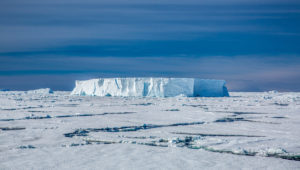 RP: In Antarctica, we stayed at the Research Base, meant specially for scientific works. The base was equipped with heating systems throughout the year and had ample stock of food. It was self sufficient for all members. The Indian government provided polar gears comprising caps, spectacles, neck and face shields, hand gloves, thermal shoes and socks, and other survival kits with 3-4 layers to protect from the extreme cold. Members would perform their daily tasks in accordance with their respective fields. We were there as teammates and would help each other with any problems, if there arose any. There are daily tasks at the station, each member contributed their share to ensure effective functioning and safety of the station.
RP: In Antarctica, we stayed at the Research Base, meant specially for scientific works. The base was equipped with heating systems throughout the year and had ample stock of food. It was self sufficient for all members. The Indian government provided polar gears comprising caps, spectacles, neck and face shields, hand gloves, thermal shoes and socks, and other survival kits with 3-4 layers to protect from the extreme cold. Members would perform their daily tasks in accordance with their respective fields. We were there as teammates and would help each other with any problems, if there arose any. There are daily tasks at the station, each member contributed their share to ensure effective functioning and safety of the station.
We often had get-togethers, to keep the human bond intact among members. All members diligently followed safety guidelines and protocols for protecting the environment of Antarctica, and under no circumstances any pollutant could be left in Antarctica.
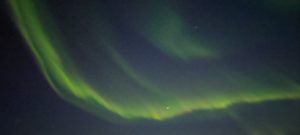 SS:Environment Day is celebrated on June 5. Apart from all other facets and factors that affect the environment, the glaciers are a crucial element that affects our environment. What are your thoughts on this?
SS:Environment Day is celebrated on June 5. Apart from all other facets and factors that affect the environment, the glaciers are a crucial element that affects our environment. What are your thoughts on this?
RP: Antarctica holds about 70% of the world’s fresh water in the form of frozen ice including glaciers, protecting Antarctica will reduce risks of rising sea level from melting ice and glaciers. Ultimately, it’s complex and it is all interrelated.
SS: As per NASA climate statistics, Antarctica is losing ice mass at an average of about 150 billion tons per year. What are your comments?
RP: NASA has sophisticated and advanced technologies for research and it is true that research has demonstrated that Antarctica is losing Ice mass year by year. It is truly a pity.
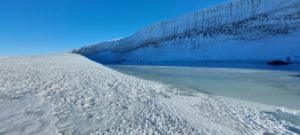 SS: The Thwaites Glacier in Antarctica also known as the Doomsday Glacier is melting at an unprecedented rate that could lead to its collapse. If and when that happens, how do you reckon it will affect us?
SS: The Thwaites Glacier in Antarctica also known as the Doomsday Glacier is melting at an unprecedented rate that could lead to its collapse. If and when that happens, how do you reckon it will affect us?
RP: It will be a sad day for scientists to see glaciers collapse; melting ice will add to rise of global sea level that lead to inundation of low level coastal areas. It is not good news. We have to act before it’s too late.
SS: For most environment degradation processes, man made experiments and malpractices have been deemed responsible. Do you think tourism in Antarctica has also exacerbated this?
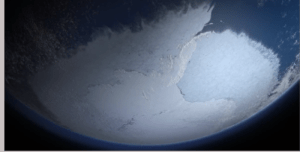 RP: Wherever man made his footprints, it has mostly contributed to environmental degradation. In Antarctica, even though adherence to strict rules on waste is followed, human activities, equipment and materials used may disturb its ecology. If tourism in Antarctica increases, it cannot be guaranteed that the ecological balance will not be disturbed.
RP: Wherever man made his footprints, it has mostly contributed to environmental degradation. In Antarctica, even though adherence to strict rules on waste is followed, human activities, equipment and materials used may disturb its ecology. If tourism in Antarctica increases, it cannot be guaranteed that the ecological balance will not be disturbed.
SS: As a professional in the field, what can we learn about ice, glaciers and their melting and their significance in our lives, even though we live very far off?
RP: About 98% of Antarctica is covered with Ice. Antarctica drives ocean currents globally facilitating stability of the earth’s climate. Disturbing the balanced nature of Antarctica may affect the normal cycle of weather and climate across the globe. Scientists were studying and researching about the ice sheets, ice shelves, glaciers, climate in Antarctica for an in depth understanding of its changes with time. Although it is the remotest, isolated and farthest from human habitation, any change in Antarctica has global ramifications.
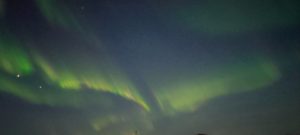 SS: What is your message to our readers on Environment Day? How can we make conscious efforts at combating or reversing such drastic changes in the environment?
SS: What is your message to our readers on Environment Day? How can we make conscious efforts at combating or reversing such drastic changes in the environment?
RP: I believe in the words “Protect nature; it will protect you”.
The Antarctic Treaty has declared Antarctica as a continent for ‘Peace and Science’, and we should respect it. In other parts of the planet, we must be dutiful in protecting the forests, prevent polluting our waters, which in turn will nourish the animals and birds in their habitats. All things on the planet are interdependent, including humans. Destroying one component will create a series of disturbance to the balanced cycle of nature, of which living things will be affected. We should reduce polluting environments, instead encourage activities that can restore a clean and green environment.
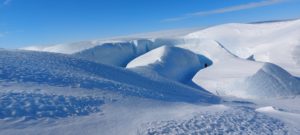 Glacial melting, even though a slow process, is a significant and alarming development that serves as a reminder for each one to act, and in time.
Glacial melting, even though a slow process, is a significant and alarming development that serves as a reminder for each one to act, and in time.
Rivertis Pariong, Meteorologist-A, of India Meteorological Department Shillong was on an Indian Scientific Expedition to Antarctica wintering between 2021 and 2022.
POLAR NIGHTS
When last sunlight disappears
Down the horizon,
It’s the start of Polar Nights
At Polar regions,
Darkness takes over the place
Continually for months.
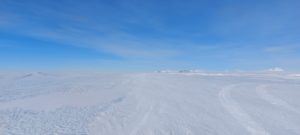
All things receded under
Cover of the dark,
All around seems obliged to;
Power of the dark,
The familiar sights as if;
Never to come back.
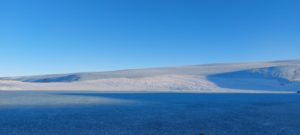 Severe cold reigning the place
Severe cold reigning the place
Further with fast wind,
Seems like hope losing its pace
Gone behind the scene,
Wonder when these phases
Subsiding their sprint.
The visit of Moon gives light
Together with stars,
The ice blooms with much delight
Hope to near and far,
Nature displaying its might
Keep things in order.
When first sunlight peeps over
Edge of horizon,
Sign for start of dark cover
To recede beyond,
It’s the end of Polar Nights
That was felt for months.
The surrounding filled with smile
When the Sun returns,
Normal trends under the sky
Resume their functions,
Learn to adapt with nature
As the cycle goes on.
– Rivertis Pariong
Date: 25.06.2022



